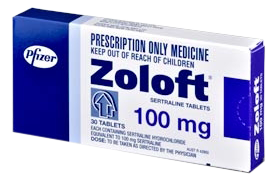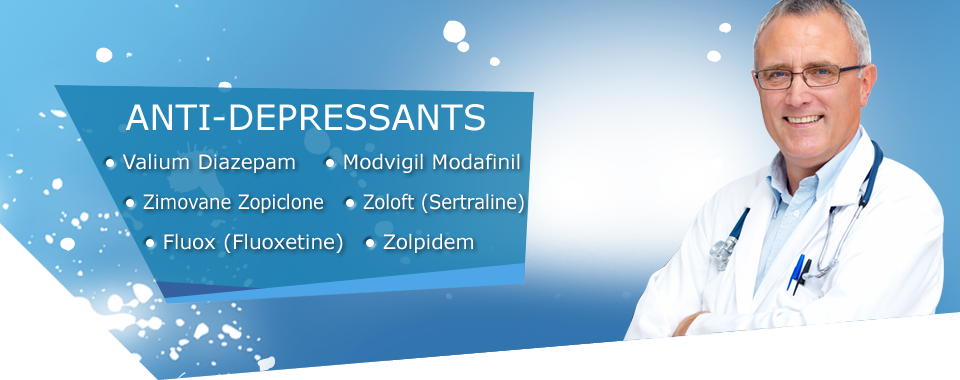
Depression is a potentially serious medical condition that only your doctor can diagnose. While the symptoms of depression are relatively universal and few, the treatment options include over 100 different medications, not counting various types of talk therapy and lifestyle changes.
 ZOLOFT (sertraline) is an approved by FDA medication to treat in adults Major Depressive Disorder (MDD), Obsessive-Compulsive Disorder (OCD), Panic Disorder, Posttraumatic Stress Disorder (PTSD), Premenstrual Dysphoric Disorder (PMDD), and Social Anxiety Disorder. It is also approved to treat Obsessive-Compulsive Disorder (OCD) in children and adolescents aged 6-17 years.
ZOLOFT (sertraline) is an approved by FDA medication to treat in adults Major Depressive Disorder (MDD), Obsessive-Compulsive Disorder (OCD), Panic Disorder, Posttraumatic Stress Disorder (PTSD), Premenstrual Dysphoric Disorder (PMDD), and Social Anxiety Disorder. It is also approved to treat Obsessive-Compulsive Disorder (OCD) in children and adolescents aged 6-17 years.
Zoloft can cause sleepiness or may affect your ability to make decisions, think clearly, or react quickly. You should not drive, operate heavy machinery, or do other dangerous activities until you know how ZOLOFT affects you.
Women who are pregnant, plan to become pregnant, or who are breastfeeding should not take ZOLOFT without consulting their physician.
The most commonly observed adverse reactions in patients treated with Zoloft were nausea (25%), delayed ejaculation (14%), shakiness (8%), increased sweating (7%), lack of appetite (6%), and reduced sexual desire (6%).
 Do not stop taking Zoloft, even when you feel better. Only your healthcare provider can determine the length of treatment that is right for you. Missing doses of Zoloft may increase your risk for relapse in your symptoms.
Do not stop taking Zoloft, even when you feel better. Only your healthcare provider can determine the length of treatment that is right for you. Missing doses of Zoloft may increase your risk for relapse in your symptoms.
Zoloft is usually taken 1 time per day with or without food. The dose usually ranges from 50 mg to 200 mg. Only your healthcare provider can determine the correct dose for you.
Avoid drinking alcohol or using illegal drugs while you are taking antidepressant medications. They may decrease the benefits (e.g., worsen your condition) and increase adverse effects (e.g., sedation) of the medication.






